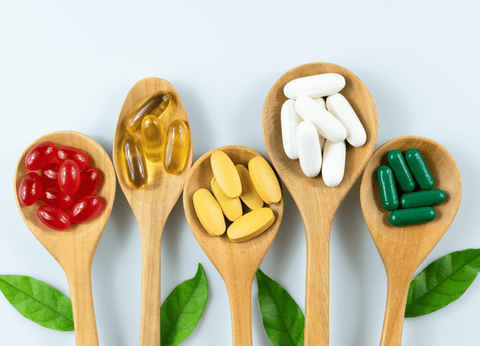By 2025, the World Health Organization (WHO) has estimated that there will be 300 million people living with type 2 diabetes mellitus (T2DM)!
In fact, diabetes alone is one of the major killers today, ending prematurely the lives of almost 7 million people in 2021.
It’s reached epidemic proportions, with almost 9% of the world’s population having some form of the disease (not including prediabetes). China has some of the worst rates, with 11% having either type 1 or type 2 diabetes.
It is considered the leading cause of preventable vision loss and a significant contributor to other chronic diseases, such as heart attacks, strokes, and kidney failure. In addition, people with poorly controlled diabetes are at an increased risk of developing nerve damage in limbs, dental problems, thrombosis, slow wound healing, dementia, and even some types of cancer. People with diabetes also have a higher likelihood of being hospitalised or even dying from COVID-19 compared to those without diabetes.
Traditionally, risks for T2DM have included genetic predispositions and lifestyle factors such as a diet high in refined sugar and low physical activity levels. In the last decade, an increasing amount of research has begun to explore the impact of sleep dysregulation on metabolic health.
Type 1 and Type 2 Diabetes
In type 1 diabetes, the body does not make insulin at all. The condition affects 5 to 10 percent of people with diabetes and is usually caused by autoimmune destruction of the pancreas. Type 1 develops more frequently in children, teens, and young adults, who will require daily insulin injections for life.
Type 2 diabetes is, by far, the most common form, affecting 90 to 95 percent of people with diabetes. This form develops over many years and is usually diagnosed in adults, who may not notice any symptoms for years before being diagnosed. The problem in type 2 diabetes is not a destruction of the pancreas but rather an inability to fully respond to the action of insulin—an issue called insulin resistance.
What is Insulin Resistance, and What Causes it?
Under normal circumstances, glucose does not have free access to all cells. Instead, it needs to enter the cell via a specific channel called the glucose transporter—a protein that facilitates glucose uptake. This glucose transporter (also called GLUT) is activated by the presence of insulin. However, in type 2 diabetes, this process does not work correctly. The cells in muscles, adipose tissue, and liver stop responding to the effect of insulin. And this inability of cells to react adequately to insulin results in increased blood glucose levels and type 2 diabetes.
But what causes insulin resistance? Why do cells stop responding to insulin?
This is a highly complex process that we are only beginning to understand. Most of the time, insulin resistance starts with a poor diet, physical inactivity, and weight gain.
Insulin resistance is believed to start with fat accumulation inside our muscle cells. When we don't exercise regularly, the body reduces the number of mitochondria inside muscle cells as we don't need to produce much energy. With fewer mitochondria, we generate less energy and burn fewer calories. This becomes particularly problematic when a sedentary lifestyle is coupled with a poor diet rich in saturated fat and refined carbohydrates. Muscle cells, already at reduced capacity to burn calories, are now overloaded with more fat and glucose than they can actually burn. Over time, fat accumulation inside the muscle cells blocks glucose uptake, leading to insulin resistance and hyperglycemia.
Simultaneously, poor diet and physical inactivity promote weight gain. When the adipose tissue is overloaded with excessive fat storage in the form of obesity, it goes under stress and responds to inflammation. This low-grade, ongoing inflammation is believed to cause even more insulin resistance.
After insulin resistance develops in the muscle cells and adipose tissue, the next affected organ is the liver. The excess glucose and fat from the diet will be deposited in the liver, causing non-alcoholic fatty liver disease (NAFLD) and aggravating insulin resistance even more.
Last but not least, the pancreas also becomes compromised. Although working extra hard to produce more and more insulin to keep blood sugar levels in the normal range, the pancreas also becomes a target for fat deposition, a condition called non-alcoholic fatty pancreas disease (NAFPD). Fat accumulation is toxic to the pancreas and reduces its ability to produce insulin over time.
These processes all happen in a stepwise approach and can be imperceptible at first. However, the result will be elevated blood glucose and insulin levels (hyperglycemia and hyperinsulinemia, respectively), leading to type 2 diabetes. In general, such abnormalities may be detected 10 years before the diagnosis of diabetes.
While eating fast food and being a couch potato are certainly significant contributors to the development of type 2 diabetes, researchers are finding that those late nights (aka a lack of sleep) also play an important role. 
Sleep and our Health
Sleep is a biological process essential for health. It is mediated by the circadian rhythm, where the natural cycle of light and dark stimulates hormones in the body (cortisol and melatonin) to regulate the body’s sleep-wake cycle.
It is also governed by homeostatic processes (sleep pressure), which build with intensity throughout the day to a point where sleep is necessary to relieve this pressure. Increased cognitive stimulation, exercise and immune activation can build this pressure, driving the need to sleep. As a result, an individual may experience more prolonged and deeper sleep.
Sleep serves a multitude of functions, including cardiovascular regulation, immune enhancement, restoration of both brain and body, memory consolidation, and metabolic regulation.
How Poor Sleep Affects our Metabolic Regulation
If you’re not getting enough sleep, this can have a devastating impact on your metabolic regulation and can lead to weight gain and diabetes and put you at increased risk of heart disease and stroke.
Repeatedly staying up late and cutting your sleep short is doing a lot more damage than just making you tired and irritable the next day!
Research is showing that sleep affects your metabolic regulation in several ways:
-
Sleep alters glucose metabolism and sensitivity to insulin
Not getting enough sleep can stimulate the hypothalamic-pituitary axis (HPA axis), increasing catecholamine production and circulating cortisol. In response to the elevated cortisol, glucose is released into your bloodstream, prompting your pancreas to release more insulin. Your cells can then start becoming resistant to insulin. The excess glucose (both from increased intake and a reduced ability to uptake into the tissues) is now converted to fatty acids and stored as fat. Thus, poor sleep can decrease glucose intolerance and insulin sensitivity due to the spikes in blood glucose levels.
With elevated cortisol levels, the body also produces less testosterone, leading to a decrease in muscle mass, and your body starts to burn fewer calories. Studies have also shown that elevated cortisol can cause the accumulation of fat around the abdominal area, which is a risk factor for T2DM.
-
Poor sleep affects neuroendocrine pathways
If your circadian rhythm is out of whack due to poor sleep, this can alter the neuroendocrine pathways influencing insulin resistance. This has been studied in shift workers, who, even if they did get enough sleep, still experienced signs of insulin resistance. This is likely due to food consumption outside the circadian eating window.
Due to working habits and lifestyle practices where people have less exposure to daylight and increased exposure to artificial light at night, many people experience dysregulation of their circadian rhythm, not just shift workers. The reason many health experts tell you to avoid artificial light in the evening is because it has a suppressing effect on your melatonin production. In fact, dim room lighting and short-wave light emitted from electronic devices can reduce melatonin production by 88%! While it is most known as the hormone that helps induce sleep, it also has an inhibitory effect on insulin secretion.
-
Poor sleep affects appetite and food habits
Sleep affects two important appetite hormones in your body—leptin and ghrelin. Leptin is a hormone that decreases appetite, so when leptin levels are high, you feel fuller. Ghrelin, on the other hand, is known as the “hunger hormone” because it is responsible for the feeling of hunger.
Research has found that lack of sleep increases ghrelin levels and reduces leptin, making it harder for your body to know when to stop eating and increasing fat retention. Lack of sleep has also been shown to impact food selection and how your brain perceives food, making you more likely to reach for carbohydrate-rich foods and sugar-filled snacks.
In one study where adolescents experienced a reduction in sleep from 8.9 hours to 6.3 hours, their average energy intake increased by 680kcal, which is the equivalent of one meal. This additional energy was made up of foods with a high glycemic index. Their meal portions were also larger, and their snacking increased. 
-
Lack of sleep reduces motivation to exercise
Studies have shown that if you get less than five and a half hours of sleep per night, you are 31% less likely to do a physical activity the next day.
When you exercise, insulin sensitivity is increased, so your muscle cells are better able to use any available insulin to take up glucose during and after activity. Daily physical activity is, therefore, an essential part of metabolic control.
-
Poor sleep increases inflammation
A lack of sleep is one of the primary drivers of inflammation and chronic low-grade inflammation is a well-recognised contributing factor to T2DM.
Research shows that sleep disturbance increases the production of pro-inflammatory cytokines, such as tumour necrosis factor-alpha (TNF-alpha), interleukin-6 and C-reactive protein (CRP). CRP is a marker of inflammation that’s elevated in people at risk for heart disease and diabetes.
During sleep, your blood pressure drops and your blood vessels relax. If your sleep is restricted, your blood pressure won’t decline as it should, triggering cells in your blood vessel walls to activate inflammation.
A lack of sleep can also stimulate the body’s stress response leading to inflammation.
In addition, inadequate sleep can impair the normal function of your brain’s waste clearance system, called the glymphatic system.
A ground-breaking study published in Science magazine in 2013 showed for the first time that the space between brain cells might increase during sleep, allowing the brain to flush out toxins that build up during waking hours and beta-amyloid protein linked to brain cell damage. Without a good night’s sleep, this waste clearance system is compromised, allowing toxins and protein to accumulate and inflammation to develop.
Another way sleep increases inflammation is via its effect on the gut microbiome. Sleep deprivation leads to an increase in gut dysbiosis.
-
A lack of sleep affects your gut microbiome
As we’ve just seen, gut dysbiosis is another underlying factor that can contribute to metabolic dysregulation and weight gain. Short-chain fatty acids (SCFAs) are produced when your gut bacteria ferment fiber in your colon and are the primary source of energy for the cells lining your gut. The three primary SCFAs are butyrate, acetate, and propionate.
SCFAs are involved in the metabolism of carbohydrates and fats. They regulate fat metabolism by increasing fat burning and decreasing fat storage. They do this by stimulating thermogenesis and increasing metabolic rate.
In addition, SCFAs—in particular, acetate and propionate—also activate your satiety hormones. These SCFAs bind to receptors in the gut lining, where they are involved in controlling appetite and in regulating the storage of fat. These receptors also play critical roles in promoting the release of specific gut hormones—peptides YY and GLP-1—which regulate your appetite. When these hormones are released by cells in the small intestine, you no longer feel hungry, less inclined to snack, and less likely to gain weight.
How to Improve Your Sleep
As you can see, the impact of sleep and circadian rhythm dysregulation on our metabolic health is complex and significant. Supporting healthy sleep habits is vital to reducing your risk of metabolic issues and diabetes.
For many people, practising better sleep hygiene is a simple and achievable way to improve the quality of their sleep. In case you think good sleep hygiene means sleeping on clean sheets, think again! It actually involves adopting routines that help facilitate the body's circadian rhythm and reducing environmental stressors that could be affecting your slumber.
To support your sleep and your health, try to make the following positive changes in your daily routine.
- Stick to a schedule - a regular sleep schedule keeps the circadian sleep/wake cycle synchronized. Experts advise that you should go to bed and wake up around the same time every day, even after a late-night social event or fitful sleep.
- Expose yourself to unfiltered morning sunlight - going for a morning walk is a great way to get lots of bright light during the day. This practice can boost your ability to sleep at night, as well as your mood and alertness during daylight.
- Use a lightbox in the morning - some people feel they are functioning "behind" a normal circadian rhythm, like naturally starting to feel sleepy and waking up at later times than what's typical. If this is your case, using a lightbox for 20 to 40 minutes in the morning can help reset your body clock and make it easier for you to fall asleep earlier at night.
- Watch the sunset - some experts suggest that watching the sunset is a perfect form of meditation or mindfulness exercise to set you up for a good night's sleep. This is because focusing on the gradual change of colors and natural shapes in the sky can give some respite from our busy minds.
- Stay off your phone before bedtime - back-lit screens, such as in most mobile phones and tablets, emit blue light, which mimics the color of the sky and tells your brain that it is still daytime. Exposure to blue light before bedtime reduces the secretion of melatonin, a hormone with powerful antioxidant and anti-inflammatory capacity that influences your biological clocks. It is recommended that you avoid looking at bright screens beginning one or two hours before going to bed.

- Use candles or dim lights after sundown - dim red lights are the best option for night lights, as they are less likely to shift circadian rhythms and suppress melatonin. If you like to read before bedtime, save the ebooks for daytime reading and choose a print book.
- De-stress - worrying about a problem or a long to-do list can be a recipe for insomnia. Well, before you turn in, try writing down your worries and make a list of tasks you want to remember. This “worry journal” may help move these distracting thoughts from your mind. We advise you to avoid watching the news or reading anything stressful late at night.
- Create your own relaxation ritual - before going to bed, try a warm bath followed by a cup of chamomile tea. You can also do some easy and gentle stretches, listen to soft music and do a deep breathing exercise.
- Watch your naps - if your goal is to sleep longer at night, long and late naps are a terrible idea. As your total daily sleep needs remain relatively constant, napping can take time away from evening sleep. An ideal nap lasts no longer than 30 to 40 minutes and should not be done after 3 pm.
- Avoid caffeine, tobacco and alcohol - if you have been struggling to improve your sleep quality, avoid substances that interfere with your natural ability to sleep. Caffeine blocks adenosine, a brain chemical that helps you fall asleep. Alcohol suppresses REM sleep, and drinkers have more frequent awakenings. Finally, nicotine is a potent brain stimulant that keeps you awake.
- Create a sleep sanctuary - turn your bedroom into a sleep-friendly environment by controlling the noise with double-pane windows and keeping the room dark. If you can't block all the light from entering your room, try wearing a sleep mask. In addition, most people sleep best in a slightly cool room, as a bedroom that’s too hot or too cold may interfere with sleep.

Nutrients for Better Sleep
Fiber
Getting enough fiber in your diet is essential for a good night’s sleep. A 2016 study found that greater fiber intake predicted more time spent in the stage of deep, restorative sleep.
Folate
Folate has been linked to lower rates of both insomnia and restless leg syndrome. Adequate folate intake also makes you more likely to feel sleepy at bedtime and better able to deal with sleep disturbances.
Magnesium
Magnesium is a mineral that plays a role in cellular communication, energy production, muscle function, blood sugar maintenance, and regulation of circadian rhythms.
Optimal levels of magnesium are associated with normal sleep regulation. Magnesium deficiency is associated with shorter sleep duration and may cause inflammation, which could result in conditions associated with poor sleep, including diabetes and cardiovascular disease. In addition, research suggests as sleep restriction increases, intracellular magnesium concentrations decline.
Due to poor soil quality and poor diet, most of us don’t get enough magnesium in our diets, making it a “usual suspect” nutrient to increase in people who are struggling with sleep.
Tryptophan
L-tryptophan is an amino acid that serves as a precursor for serotonin and melatonin. Like melatonin, L-tryptophan levels decrease with age; therefore, L-tryptophan supplements may increase the amount of melatonin made by the pineal gland.
An analysis of data from 29,000 individuals determined that tryptophan intake was positively associated with sleep duration.
Plant sources of tryptophan include leafy greens, sunflower seeds, watercress, soybeans, pumpkin seeds, mushrooms, broccoli, and peas. Also, cereals fortified with tryptophan have been found to increase sleep efficiency and total sleep time and decrease broken sleep.
Melatonin
Low melatonin levels have been linked to insomnia.
Research suggests melatonin supplementation improves sleep, enhances alertness after sleep and reduces the number of times people wake up during the night. For example, a review of 19 clinical trials including 1,683 patients found that melatonin improves sleep quality, increases total sleep time, and decreases sleep latency.
The effects of melatonin on sleep are modest but do not appear to dissipate with continued use.
Make Sleep a Priority
The takeaway from all the research is clear – if you want to reduce your risk of developing diabetes and metabolic dysfunction, make sure you are getting quality sleep. And don’t forget that a good night’s sleep isn’t just beneficial for your metabolic health – it also helps improve cognitive function, mood and overall physical well-being. So go ahead and turn off the TV and computer screens an hour before bed, put on some calming music, and drift off to dreamland!
How will you make sure you get quality sleep from now on?
Recipe Spotlight: Tofu and Veggie Skewers
Getting your circadian rhythm back on track and de-stressing aren't the only things you need to make sure you get enough sleep. You also have to look at the food you’re eating.
So in this recipe, we included vegetables like bell peppers, tomatoes, squash, onions, and mushrooms, as well as the ever-flexible tofu—all packed with nutrients you’ll need to improve your sleep quality.
We also included a recipe for the marinade so you won’t have to get the store-bought ones! Enjoy!















What Do You Think? Comment Below: